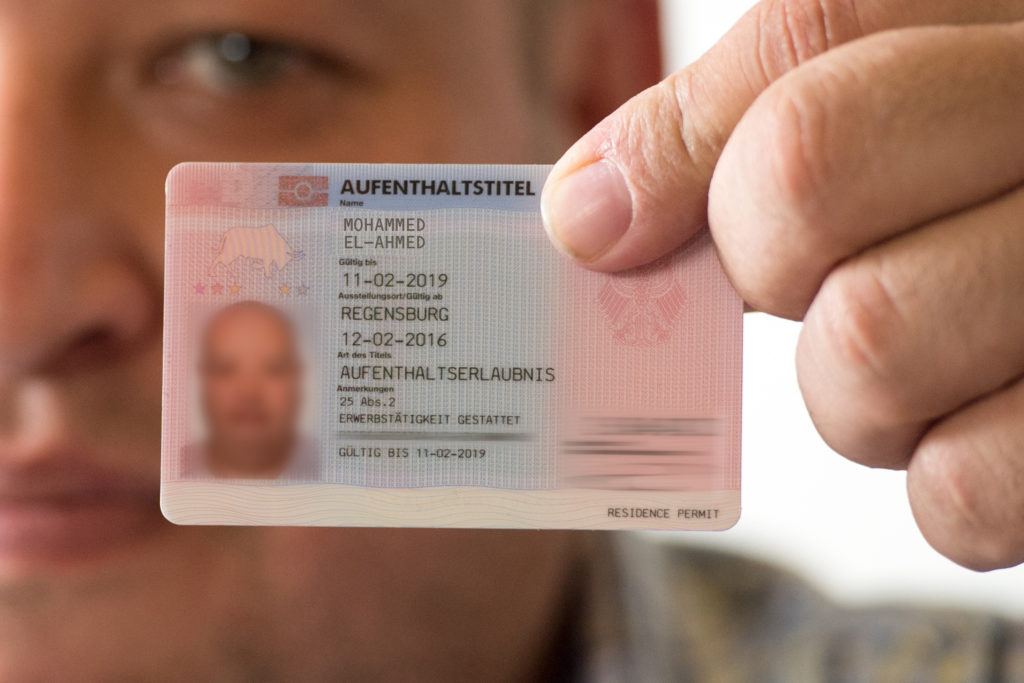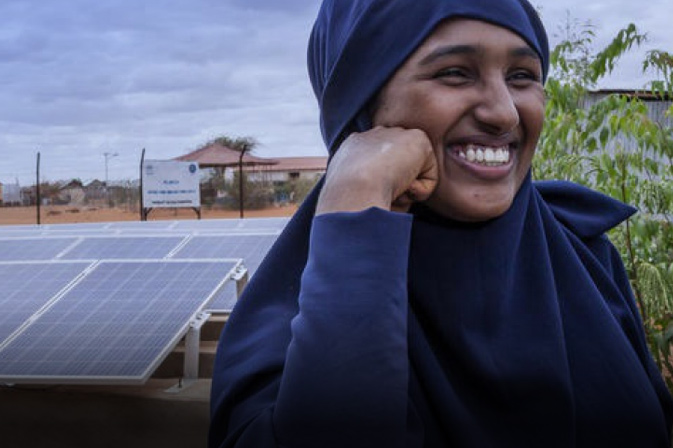Everything migrants and returnees need to know!
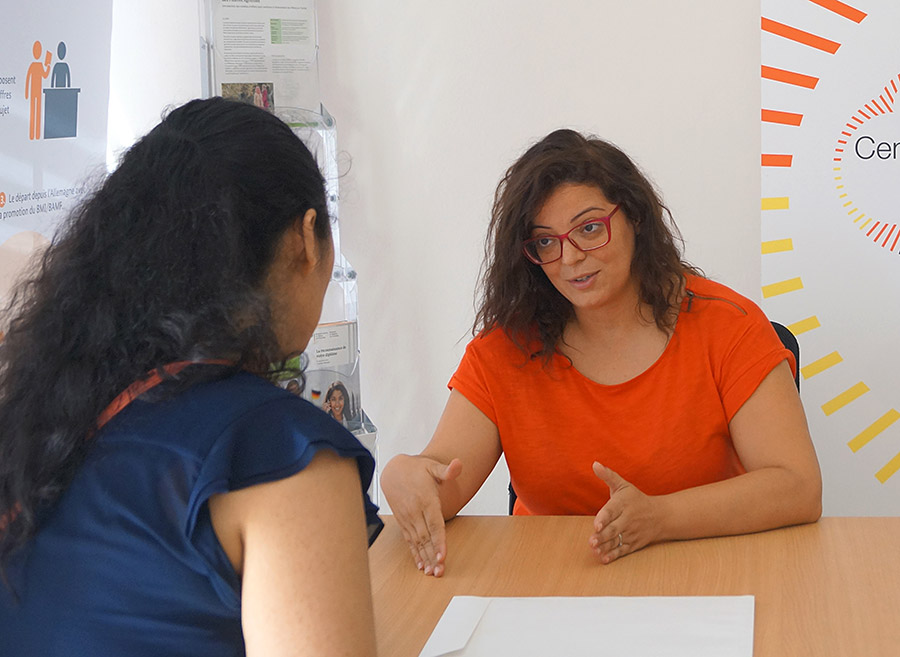
How can I start working or training in Germany? What professions are in demand in my home country? How can I do further training?
The answers to these questions can be found at special advice centres currently being run in eight countries by the Deutsche Gesellschaft für Internationale Zusammenarbeit (GIZ) GmbH on behalf of the Federal Ministry for Economic Cooperation and Development. The centres advise people who are interested in migrating to Germany, people who have returned to their home country and people looking for career opportunities.
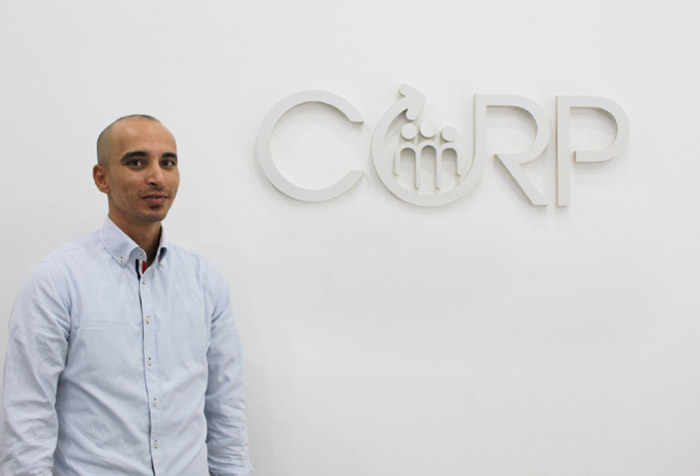
Aymen Sassi was actually about to leave for Germany in March 2017. He had completed a bachelor in hotel management in Tunisia, but it was difficult for him to find a job in his home country. He thought it might be easier in Germany. Like many of his colleagues and friends, he hoped to have better career opportunities in western Europe.
Aymen went to the German-Tunisian Centre for Jobs, Migrations and Reintegration in Tunis, originally to seek advice on his chances of finding a job in Germany. At the centre, he learned that he had a good chance of finding work in Tunisia. The advisers asked him if he would be willing to retrain. They told him that social media managers were needed in Tunisia and that he could train for this job at the Centre for Professional Orientation and Retraining (CORP), a project run by the German-Tunisian Chamber of Commerce, which also receives funding from GIZ.
Like many other countries in North Africa, Tunisia is facing a great challenge – many young people are well educated but unable to find work. This is not always because there are no jobs. Sometimes people simply don’t know in what fields qualified staff are being sought in the various countries. Aymen only found out that social media experts are needed in Tunisia when he visited the advice centre.
He decided to retrain and shortly after doing a course at CORP, he found a job at Rouhaniet event agency, where he is responsible for social media channels. He is now happy that he stayed in his home country.
The advice centre in Tunisia is one of eight centres that have been set up on behalf of the Federal Ministry for Economic Cooperation and Development in cooperation with GIZ and the local job centres. There are also centres in Albania, Ghana, Iraq, Kosovo, Morocco, Senegal and Serbia. A guidance service was recently set up in Afghanistan via the International Organization for Migration (IOM). A centre will be set up in Nigeria in the near future, while other centres are planned in Egypt and Pakistan.
In facetoface talks, the centre staff address the specific needs of each and every visitor. This means they can advise people individually and provide tailormade guidance on topics such as training or further training, suitable professions and additional qualifications that may be needed to find a job abroad.
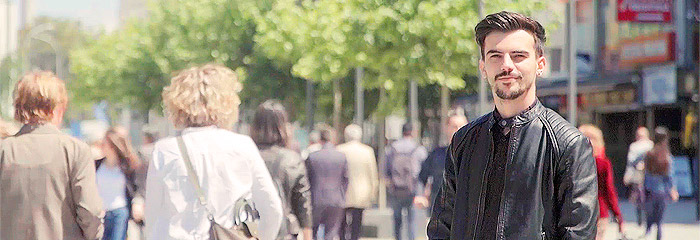
Arian Gashi, for example, dreamed of moving back to Germany. As a child, he had lived near Stuttgart with his family for a few years. After finishing school in Kosovo, he was determined to return to Germany. At the German Information Centre for Migration, Employment and Careers (DIMAK) in Pristina, he found out what requirements he would need to meet to be granted a work visa for Germany and thus enter the country legally. The staff at the centre told him about a training scheme run by the Kosovar-German Business Association. He applied to the electronics company Wurm via the scheme and got an apprenticeship at the firm as a building electronics technician.
In total, around 38,000 guidance sessions have been held at the eight advice centres so far. Furthermore, some 10,000 people have completed jobapplication training. The centres do not only advise individuals, but also bring job seekers and employers together at job and career fairs. Overall, 34 job and career fairs have been organised to date. More than 45,400 people attended these events.
Advising returnees is another important task of the centres, which help people returning from abroad to find their feet again back home.

Euresa Bajrami returned to Kosovo in 2016. Prior to that, she had spent a year in Germany with her family and attended catering and nutrition classes at a vocational school in Lower Saxony. After returning to Kosovo, she received a grant via the URA project and found out about employment opportunities in her field at DIMAK in Pristina. “I discovered that I really enjoy baking cakes,” she said. “I wanted to learn more.”At DIMAK, she was advised to do an apprenticeship as a pastry chef at a recognised vocational training centre. Once she had completed her training, she took a big step and set up her own business. Euresa and her mother now bake cakes, which they sell online. “My dream is to open my own cake shop in Pristina in the near future,” she says.
You will find details, addresses and telephone numbers of advice centres near you at
Further information:
https://rumoursaboutgermany.info/rumours/will-the-german-government-help-you-to-go-back-home/

